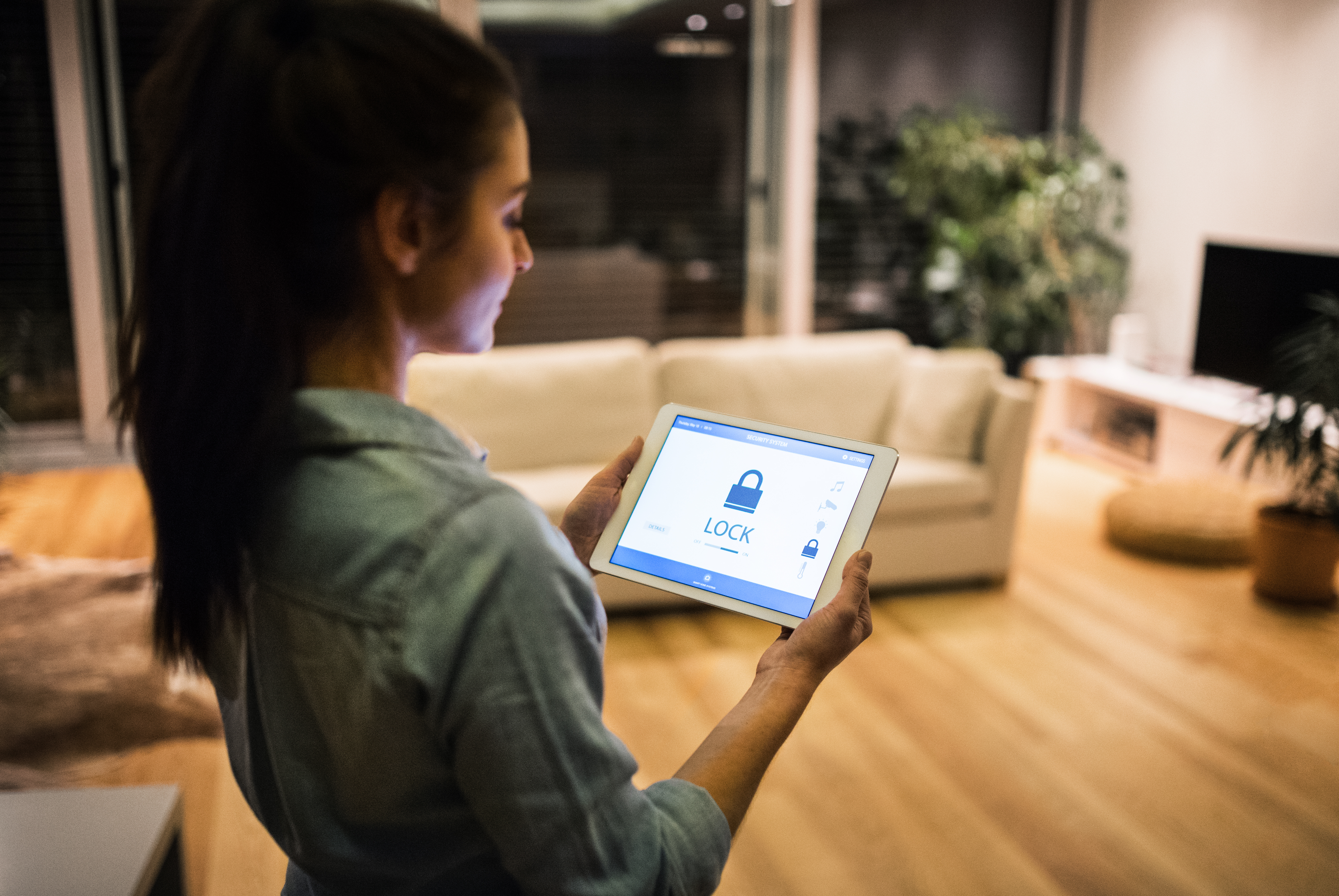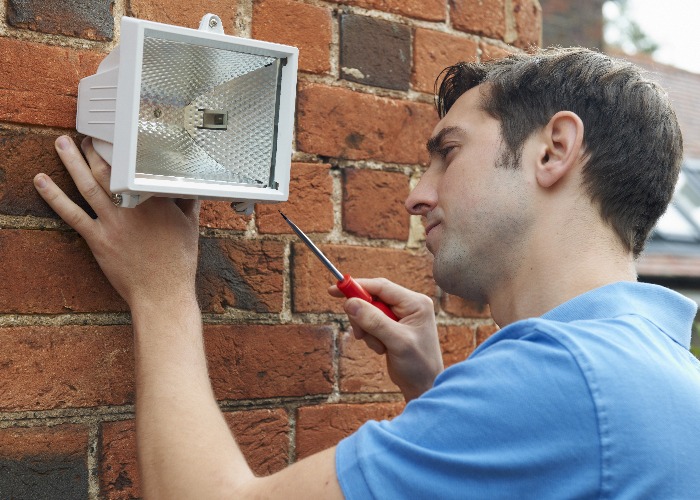
Getting your real estate license and passing the real estate exam is only the beginning of your journey in the real estate world. As an agent fresh from real estate school, you're not only tasked with helping your clients find their dream home but also offering them advice on how to keep that home secure once they've settled in. Home safety is an essential aspect of homeownership that many people may overlook, but it can make all the difference in providing peace of mind for your clients.
Change the Locks Immediately After Moving In
After your client has closed escrow on their new home, one of the first recommendations you should make is to change all the locks. During the home-buying process, multiple individuals may have access to the keys, including other real estate agents, appraisers, and contractors. To ensure maximum safety, advise your clients to replace all the locks as soon as the sale closes, ideally before moving in or starting any renovations. This is a simple yet effective first step in home security that might not be covered in a traditional real estate school curriculum but is a crucial tip for new homeowners.
Hide Alarm System Wiring
Many homeowners choose to install alarm systems for added security. If your clients decide to do this, remind them to conceal all the alarm system wiring. Exposed wires could be cut by intruders, thereby disabling the system. Though professional installation companies usually take care of hiding the cables, if your client opts for a DIY approach, this tip could be invaluable. Safety precautions like this are only sometimes emphasized in real estate license courses but are essential to maintaining a secure home.
Keep Entryways Clear When Landscaping
In your real estate school, you've probably learned about the importance of curb appeal. While landscaping is an important part of this, it's crucial to remind your clients to keep safety in mind when designing their outdoor spaces. Bushes and trees can enhance a home's aesthetic appeal, but if they're too close to the house, particularly near doors and windows, they could provide cover for potential intruders. Encourage your clients to plan their landscape design to leave entryways clear and visible.
Encourage Clients to Build Relationships with Neighbors
One safety tip often overlooked in traditional real estate education is the value of community. Encourage your clients to get to know their neighbors. A close-knit neighborhood community can be a strong deterrent against crime. While they don't need to be best friends with everyone, being on good terms and maintaining open communication with those living nearby can provide an extra layer of security.
Illuminate Dark Areas Around the Property
Ensuring proper exterior lighting can significantly increase home safety. Advise your clients to identify and illuminate any dark areas around the property. Well-lit exteriors are less attractive to potential intruders, who are more likely to target homes that offer easy, concealed access. This goes beyond what's taught for the real estate exam and falls under the practical advice you can provide as a real estate agent.
Establish a Safety Routine
Installing locks, alarms, and lights is one thing, but maintaining them is equally important. Encourage your clients to establish a safety routine. This could include nightly checks of all doors and windows, monthly tests of the alarm system, and bi-annual checks of outdoor lighting and smoke alarms.

Install a Home Security System
While this might seem an obvious suggestion, it's worth mentioning because of its significant role in home security. Today's home security systems have evolved and offer a variety of features, including smart technology integration, real-time monitoring, mobile alerts, and even emergency service dispatch. While the potential cost may initially put off many homeowners, a security system's added security and peace of mind can be invaluable. As an agent, you can remind your clients that various options cater to different budgets and requirements.
Regularly Check and Update Exterior Doors and Windows
Doors and windows are the primary entry points for intruders. Encourage homeowners to regularly check the condition of all doors and windows, making sure they close and lock properly. Reinforce doors with deadbolts and consider upgrading to solid-core doors, which offer better resistance against forced entry. Safety measures for windows include adding window security film, installing window or glass break sensors, and using window bars (Ugly, but might help depending on the area. Make sure these are up to code, however and allow fire release and other legally required features.)
Use Timers for Lights and Electronics
Have you ever seen a house with lights, a TV, or a radio on and assumed someone was home? Well, that's precisely what timers for lights and electronics can do - they can trick people into thinking someone is at home even when the house is empty. This is a great trick to keep your home safe, especially if you're away for a vacation or won't be home for a while.
So, how do timers work? It's actually pretty simple. A timer is a device that you can set to turn your lights, TV, or radio on and off at certain times. For example, if you're away, set the timer to turn on your living room light at 7 p.m. and turn it off at 10 p.m., just like you would if you were home.
The cool thing is, with new technology called "smart home technology," you can manage these timers with an app on your smartphone. That means you can control your home's lights and electronics from anywhere. So, even on vacation far away, you can use your phone to turn on your lights or TV back at home.
Using timers like this can make your home safer by making it seem like someone is home. Most people who might try to break into a house would think twice if they thought someone was there. So, using timers for your lights and electronics can help protect your home, even when you're not there!
Be Cautious with Social Media
While this may not be the most traditional safety advice, in the digital age, it's increasingly relevant. Advise your clients to be cautious about what they share on social media. Posting about being away from home could alert intruders that their property is unoccupied. Sharing vacation photos or posts after they've returned home is advisable rather than during their time away.
As a real estate agent, your job extends beyond passing the real estate exam and helping clients find new homes. By providing these tips and continuing your real estate education beyond what's taught in real estate school, you can help ensure your clients feel secure and satisfied in their new homes.
Your journey toward getting a real estate license has given you the skills and knowledge to guide your clients in home buying. Now, with these safety tips, you're better equipped to provide them with valuable advice for their life as homeowners.
As always, if you are interested in getting your real estate license visit www.adhischools.com or call us at 888-768-5285.
Love,
Kartik
Avoiding Non-DRE-Approved Real Estate Schools in California
Most Popular Real Estate Schools in California
California Real Estate Exam Rules & Testing Policies

Founder, Adhi Schools
Kartik Subramaniam is the Founder and CEO of ADHI Real Estate Schools, a leader in real estate education throughout California. Holding a degree from Cal Poly University, Subramaniam brings a wealth of experience in real estate sales, property management, and investment transactions. He is the author of nine books on real estate and countless real estate articles. With a track record of successfully completing hundreds of real estate transactions, he has equipped countless professionals to thrive in the industry.